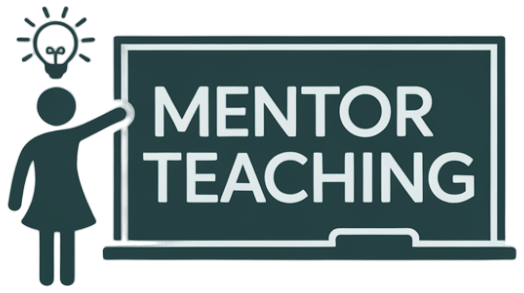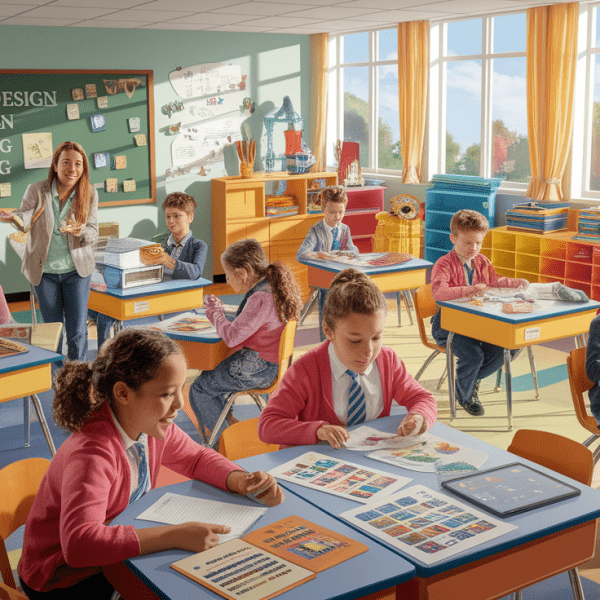Introduction
Clear goals and objectives are the foundation of successful lesson plans. This guide will help teachers create effective lesson plan goals and objectives with practical examples.
Goals vs. Objectives
Goals are broad statements outlining a lesson’s general purpose. Objectives are specific, measurable statements describing what students will do by the lesson’s end.
Writing Effective Objectives
When creating objectives:
- Use observable action verbs
- Avoid vague terms
- Align with course goals
- Make them achievable
The ABCD model helps create strong objectives:
- Audience: Who?
- Behavior: What?
- Condition: How?
- Degree: How well?
Examples Across Subjects
Science
Goal: Understand photosynthesis
Objective: “Students will label plant parts involved in photosynthesis on a diagram with 90% accuracy.”
English
Goal: Improve persuasive writing
Objective: “Students will write a five-paragraph persuasive essay with a thesis, arguments, and conclusion.”
Math
Goal: Master basic geometry
Objective: “Students will measure and classify angles using a protractor with 100% accuracy.”
History
Goal: Understand World War I causes
Objective: “Students will identify components of MAIN causes of World War I in writing.”
Bloom’s Taxonomy in Objectives
- Remember: List main characters
- Understand: Summarize plot
- Apply: Relate events to experiences
- Analyze: Compare characters
- Evaluate: Assess effectiveness
- Create: Write alternative ending
Differentiated Instruction
Basic: “Students will identify three mammal characteristics.” Intermediate: “Students will compare mammals and reptiles using a Venn diagram.” Advanced: “Students will create an animal classification system.”
Subject-Specific Examples with SMART Objectives
SMART objectives are Specific, Measurable, Achievable, Relevant, and Time-bound. Here are examples across different subjects:
Physical Education
Goal: Improve cardiovascular endurance
Objective: “By the end of the unit, students will be able to run a mile in under 12 minutes, demonstrating proper breathing techniques throughout the exercise.”
Art
Goal: Develop color theory understanding
Objective: “Within a 45-minute class period, students will create a color wheel using primary colors to mix and produce secondary and tertiary colors with 100% accuracy.”
Music
Goal: Enhance rhythm reading skills
Objective: “After three lessons, students will accurately clap and count aloud a 4/4 time signature rhythm containing quarter notes, eighth notes, and quarter rests with 90% accuracy.”
Foreign Language
Goal: Improve conversational skills
Objective: “By the end of the week, students will engage in a 2-minute conversation in the target language, using at least 5 new vocabulary words and 2 different verb tenses with minimal errors.”
Computer Science
Goal: Introduce basic programming concepts
Objective: “In a 90-minute lab session, students will write a simple program using variables, loops, and conditional statements to solve a given problem with no more than two syntax errors.”
Social Studies
Goal: Understand the branches of government
Objective: “After a unit on government structure, students will create a visual representation of the three branches of government, explaining the main function of each branch in writing with 85% accuracy.”
Conclusion
Well-crafted objectives:
- Guide instruction
- Clarify expectations
- Ease assessment
Practice refining your goals and objectives to enhance teaching and learning outcomes.
This section provides additional concrete examples of SMART objectives across various subjects, helping teachers understand how to craft specific and measurable objectives for different areas of study. It maintains the formatting of the original article and adds value for those seeking diverse examples of lesson plan goals and objectives.
IMAGE PROMPTS
### Featured Image Prompts
1. A diverse group of students and a teacher engaged in a classroom, displaying collaboration and learning.
2. An arrangement of various educational materials and tools on a classroom desk, symbolizing planning and teaching.
### Embedded Images and Placement
– **After “Goals vs. Objectives”**
– An open book with key concepts highlighted, aimed at illustrating understanding and learning.
– **After “Writing Effective Objectives”**
– A detailed diagram showing a classroom at work with a whiteboard featuring a list of action verbs, like a lesson plan in progress.
– **After “Examples Across Subjects”**
– A collage of different subject symbols (e.g., a science beaker, an English book, math numbers, and history artifacts) representing various educational disciplines.
– **After “Bloom’s Taxonomy in Objectives”**
– An imaginative rendition of Bloom’s Taxonomy shaped like a pyramid with abstract representations of cognitive levels.
– **After “Differentiated Instruction”**
– A classroom with diverse learning stations, each catering to different learning levels or styles.
– **After “Subject-Specific Examples with SMART Objectives”**
– A chalkboard with the SMART acronym creatively styled with images for each letter, suggesting focus and specificity.
METADESCRIPTION
Unlock your teaching potential! Discover how to craft clear and effective lesson plan goals and objectives with practical examples across all subjects. From science to art, learn the secrets to measurable outcomes using the SMART criteria. Transform your lesson planning today!
INVENTED URL CHECK
After reviewing the article, I found one URL that is not in the BACKGROUND section:
In the History example under the “Examples Across Subjects” section, there is a link:
“Students will [identify components](https://www.thoughtco.com/lesson-plan-step-1-objectives-and-goals-2081856) of MAIN causes of World War I in writing.”
This URL (https://www.thoughtco.com/lesson-plan-step-1-objectives-and-goals-2081856) is not present in the BACKGROUND section.



